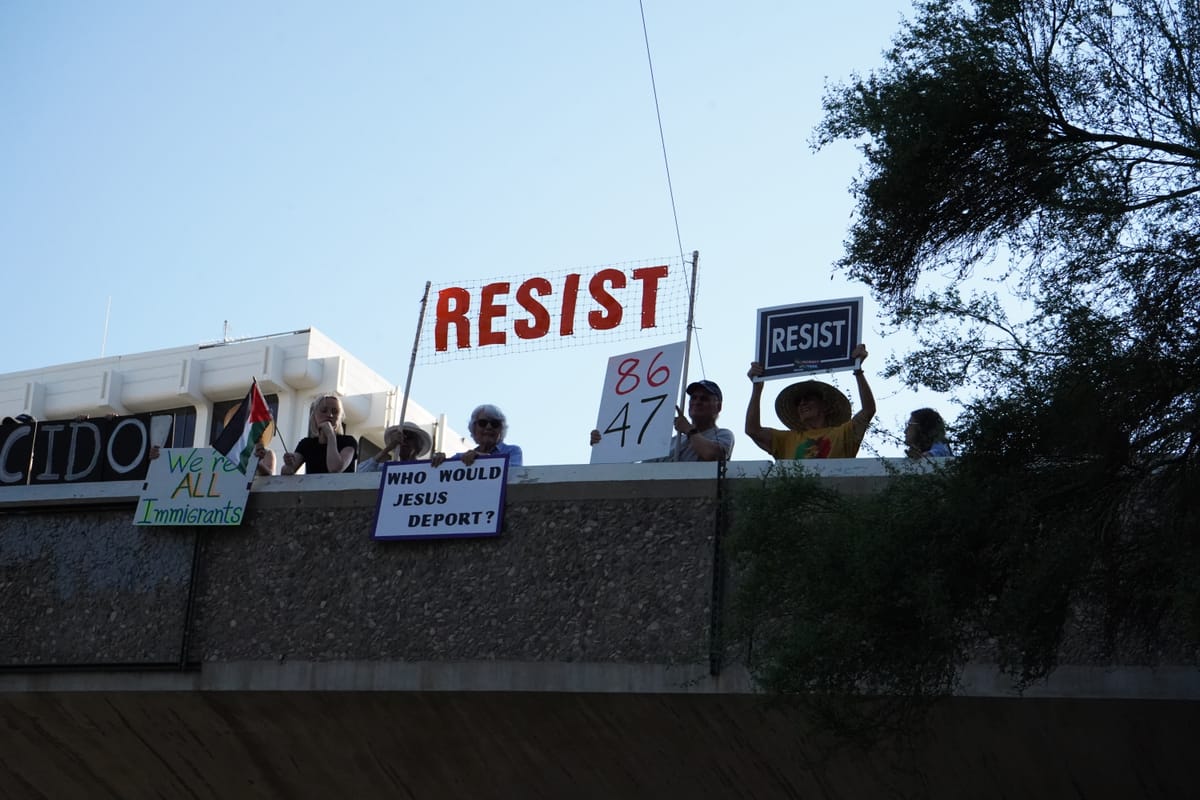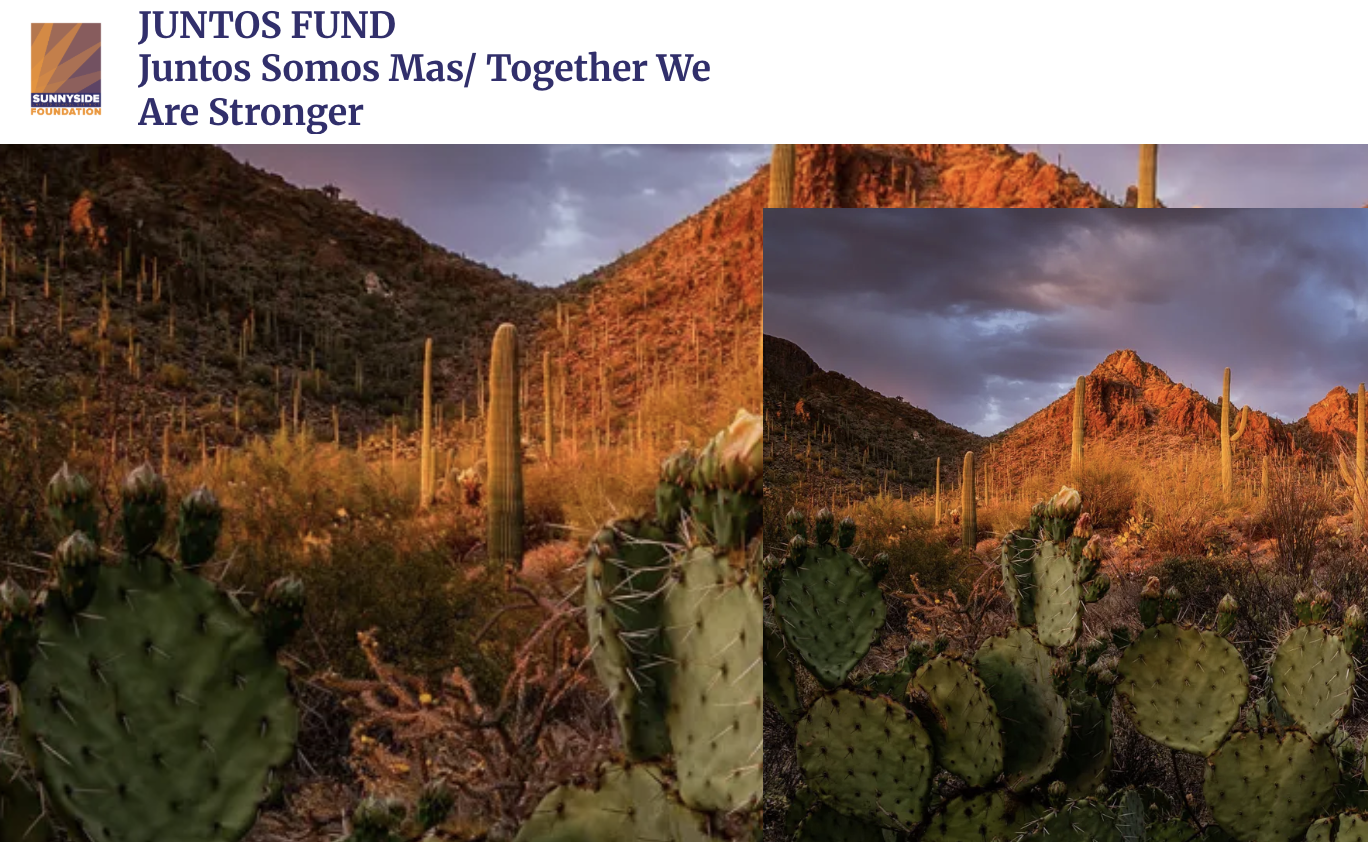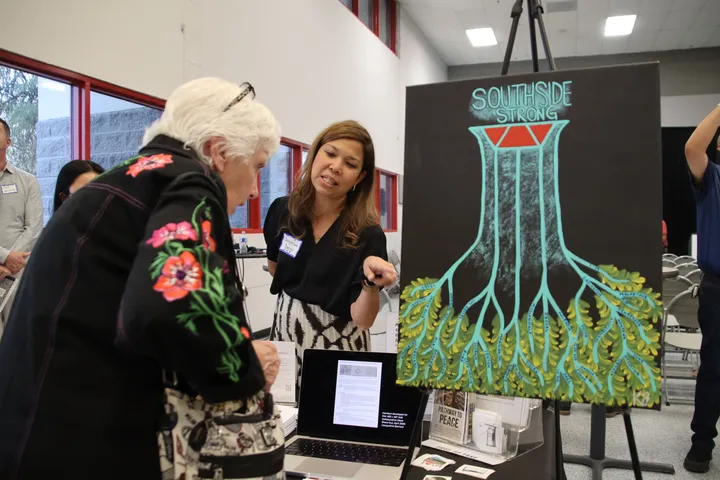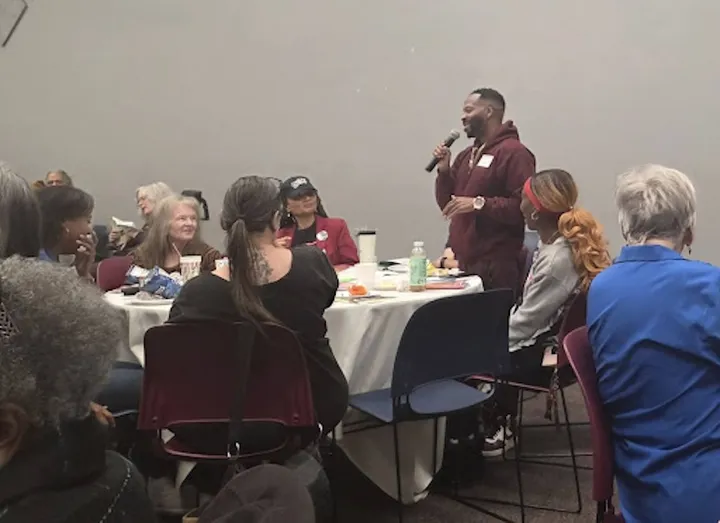Tucson fund seeks $500K for undocumented families
The Sunnyside Foundation is raising $500,000 to provide cash assistance and legal support to undocumented and mixed-status families in Tucson affected by detention or deportation.

After months of showing strong support for the immigrant community through protests and demonstrations, Tucson residents can now put their words into action by directly helping undocumented and mixed-status families.
The Sunnyside Foundation is raising $500,000 in collaboration with other groups for its Juntos Fund, a mutual aid relief fund that offers families in Tucson facing the ripple effects of detention or deportation cash assistance and legal support.
The foundation is hosting a fundraising event on Thursday, Aug. 28, to collect donations from the community, with funds raised supporting legal costs and supplementing the loss of income due to detention or deportation.
Through referrals from local community organizations, funds will be loaded onto cash cards that families can use for anything, from groceries and utilities to child care and educational support.
More than 16.7 million people share a home with at least one family member who is undocumented, often a parent, according to the American Immigration Council.
In Arizona, 30% of undocumented people have lived in the United States for over 20 years and are established members of society with jobs and families.
“They’re our neighbors, they’re our community, they’re our students. They’re part of what makes our community thrive and wonderful,” said Sunnyside Foundation CEO Elizabeth Soltero. “They help all of us and we help each other.”
The group has already raised about $40,000 in private funds and is aiming for another $120,000 by the end of the year. Soltero hopes to host an initial round of aid distribution in September, but that depends on donations, and fundraising has been challenging.
Research shows that detentions and deportations cause profound harm that extends far beyond the individual.
Carolina Silva, executive director of Scholarships A-Z, told Tucson Spotlight that families often lose income when the household’s primary earner is detained or deported.

One study shows that families lost 40% to 90% of their income within six months of a parent’s immigration-related arrest, detention, or deportation.
“Their world is completely shaken upside down because now they have to make the decision between paying rent and paying for legal fees,” Silva said.
She hopes that the Juntos Fund can alleviate some of the financial burden and stress that immigration-related arrests place on family members.
When a family is severed due to immigration enforcement, the remaining family members take on new roles.
Mothers step into a breadwinner role, working various jobs to make ends meet. Because the remaining parent spends so much time away from the family to support them financially, the children are tasked with taking care of themselves and, in some cases, getting a job to help with finances or reduce the burden on the remaining parent.
This, in turn, can impact their school performance and retention. Educators report concerns with student absences and a decline in academic performance because of immigration-related circumstances, and youth without a high school diploma or GED are 4.5 times more likely to experience homelessness.
Other trickle-down effects of deportation on children include a sense of shame, abandonment, depression, and fear, which impact their sense of self and well-being, according to the American Immigration Council. They are also at risk of experiencing severe psychological distress, developing PTSD, suicidal thoughts, and even physical conditions like cancer, diabetes, heart disease, and stroke.
Economic hardship, food insecurity, and housing instability are just some of the challenges families face. In the most severe cases, parent deportations can result in children entering the foster care system. In 2011, nearly 5,000 children in foster care had at least one parent who was detained or deported.
Youth on Their Own is one of the Juntos Fund’s referral partners. While they don’t ask about the immigration status of anyone they serve, CEO Elizabeth Slater said they recognize that some of the students they assist are undocumented or come from a mixed-status family and face additional challenges.
“Most youth experiencing homelessness do not have access to their vital documents anyway. You could be U.S. citizens but couldn't prove it if they were asked to by the police or ICE,” Slater said. “We're definitely hearing a lot of fear and stress.”

Mixed-status or undocumented families are already under threat of deportation wherever they go. For unhoused and undocumented youth, that threat is even greater because they lack a safe space — at home, at school, or in public.
Unhoused youth aren’t typically on the streets, Slater said. Couch surfing is a common experience for unhoused teens, moving from place to place with no real housing stability.
“They certainly aren't getting the support that they would receive from a parent,” Slater said. “One of our alumni described it as, ‘They took me in, but they didn't take care of me.’”
When a person is held on an immigration enforcement charge, their absence triggers a domino effect that drastically changes the lives of those around them.
Nationally, ICE has detained roughly 59,000 people — over 140% of its capacity and a record high — as the Trump administration stepped up enforcement against the immigrant community.
“We are unfortunately in crisis mode,” Silva said. “In Southern Arizona, we do not have one organization with the capacity or the resources.”
Sunnyside Foundation has a track record of success in fundraising efforts, including the Emergency Relief Fund it created during the COVID-19 pandemic, which provided cash assistance, food box distribution, and an eviction rental assistance program for those in need.
The foundation and its partners are hopeful that the community will support the fundraiser through donations, visibility, and extended empathy for the undocumented community.
“It's not some organization that has like a crazy rubric that is handing money out. It's literally organizations that are already rooted in the community themselves,” Silva said. “The relationships are already there. We already have a waiting list, we're ready to go, we just need those funds.”
Susan Barnett is Deputy Editor of Tucson Spotlight and a University of Arizona alum. Contact her at susan@tucsonspotlight.org.
Tucson Spotlight is a community-based newsroom that provides paid opportunities for students and rising journalists in Southern Arizona. Please consider supporting our work with a tax-deductible donation.



